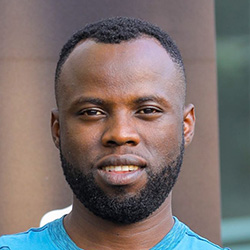

The 1994 Genocide against the Tutsi claimed over a million innocent lives who included talented sports personalities in different fields.
Despite the tragedy, sports has always been a driving force to not only unite Rwandans but also as a tool to promote peace.
To remember players killed during the 1994 Genocide against the Tutsi, different federations organise Genocide Memorial tournaments annually.
Participating teams observe a minute of silence before games to pay respect to players and supporters who were killed during the 1994 Genocide against the Tutsi.
It is also through the tournaments that different messages are delivered to fight Genocide ideology and denial. Unity and reconciliation are emphasized among Rwandans.
Volleyball is one of the sports disciplines that was most affected during the Genocide, with more than 100 players losing their lives.
The first memorial tournament was organised to remember those players before other federations followed after they were inspired to organise similar tournaments on an annual basis in their respective sports disciplines.
The volleyball memorial tournament was organised in 1997 by renowned volleyball veteran Alphonse Sebarinda in memory of his younger brother and former national volleyball team player Dominique Ngoga Sebarinda.
"These are the tournaments that help us not only remember the Tutsi victims who were players or supporters of the Volleyball game but also help the post-Genocide Volleyball players to draw inspiration from the history of the slain victims’ careers,” volleyball coach Fidele Nyirimana said.
The tournament was later expanded to the national level and was rebranded as the volleyball Genocide Memorial Tournament (GMT). The tournament now includes regional teams from Kenya, Uganda, Tanzania and Burundi, Congo Republic and Democratic Republic of Congo.
"These teams always come not just to compete but it is an opportunity for participating clubs from the region to take time to visit different Genocide memorials to learn and know the truth about the history of Genocide against the Tutsi,” Nyirimana added.
Thanks to the tournament, the volleyball fraternity has been able to identify the Tutsi players and supports who were killed during the Genocide so teams can pay respect to them.
The annual volleyball memorial tournament has inspired other federations to organise similar tournaments in football, basketball, handball, tennis, kung-fu and swimming, as part of remembering the players, coaches, supporters and sports leaders who were killed during 1994.
In football, the inaugural edition of the memorial tournament was staged in 2015 and was played on a round-robin format, attracting four countries namely; Kenya, South Sudan, Tanzania and hosts Rwanda.
Over 70 football players were killed in the Genocide.
Some teams that lost players include Mukura Victory Sports, SC Kiyovu, Rayon Sports, Panthère Noire, Etincelles, Gishamvu, Mukungwa, Terminus and Kilo Volte.
Although games like Cricket are new in the country having been introduced in 2000 six years after the Genocide against the Tutsi, the Cricket governing body (RCA) was not left behind in joining the sports fraternity to remember the sports personalities killed during the 1994 Genocide against the Tutsi.
It was among the first federations that took a leaf from the Volleyball community and started organising an annual Cricket memorial tournament in 2014.
Besides growing the level of women’s cricket, the Association invites neighboring countries not only to take part in the tournament but has also organised visits to memorial sites for them to know the horrific times that cost over a million Tutsi in as few as 100 days.
"Although cricket is a sport that was introduced after the Genocide, we use this tournament as a platform to educate people, especially the young generation and teams from sister countries that we invite, to understand the impact of the violence that happened during the Genocide,” said Emma Byiringiro, the General Manager of Rwanda Cricket Association.
"We believe it is important for teams from other countries to visit Genocide memorials during the tournament so that they get to know what happened in Rwanda and make sure it never happens in their respective countries,” he added.
For players, Genocide Memorial tournaments have always been an occasion to help put a smile back on Rwandans after the 1994 tragedy.
Female basketball player Charlotte Umugwaneza has scars of the 1994 Genocide against the Tutsi after losing family members and her fairytale journey to one of the best female basketballers in the country is a true testimony of the power of sports in giving back the essence of life to even the most vulnerable.
To the women’s national basketball team and APR BBC skipper, sport is all about happiness and getting entertained, and playing memorial tournaments not only helps her win trophies for her team but also gives her and the sporting community, in general, a motivation to live a happy life.
"These are competitions we play in not just for the pride for our clubs but to also show a sign of solidarity to those who lost their loved ones. There are young players, for instance, who were born to parents who survived from the Genocide against the Tutsi,” Umugwaneza said.
"I believe these memorial tournaments build the feeling that there is hope to live a happy life again, especially when they see their children playing with a smile on their face,” she added.
Genocide memorial tournaments did not take place last year due to the coronavirus outbreak and federations are undecided yet over whether they will organise tournaments this year since the pandemic remains a major constraint.


